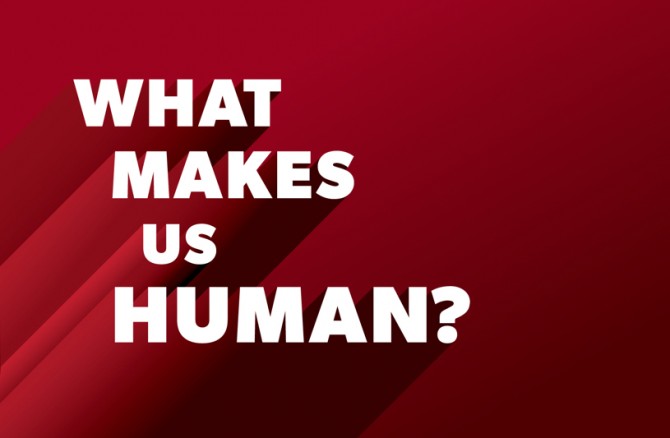Cornell launches ‘What Makes Us Human’ podcast series
By Linda B. Glaser
Are humans special creatures, uniquely endowed with reason? Or are we simply animals who can talk and build?
“What Makes Us Human,” a new podcast and essay series from the College of Arts and Sciences in collaboration with Cornell Broadcast Studios, will showcase the newest thinking from across the disciplines about what it means to be human in the 21st century. Featuring 2- to 3-minute audio essays written and recorded by Cornell faculty, the series will release a new episode each Monday through the fall. The first posted Sept. 27.
“Our convictions about human nature have serious consequences: They shape our political decisions, our daily actions and our plans for the future,” said podcast producer Caroline Levine, the David and Kathleen Ryan Professor of Humanities at Cornell. “Claims about what it means to be human have justified revolution, imperial conquest, slavery, environmental policy and campaigns for mass education.”
As Nobel Laureate Roald Hoffman, the Frank H. T. Rhodes Professor Emeritus of chemistry says in his podcast episode, “to be human is to try to understand.”
The podcast series is a continuation of the College of Arts and Sciences’ New Century for the Humanities, a celebration of the humanities in the 21st century, that launched with the opening of Klarman Hall in 2016, the first new building on Cornell’s central campus dedicated to the humanities in a century.
“The humanities play a central role in our public discourse, raising ideas and issues that are critical to our future in the face of a rapidly changing world. By asking one of the most difficult questions, this series aims to spark curiosity, exploration, and a deeper understanding of what makes us who we are, as well as who we could be,” says Gretchen Ritter ’83, the Harold Tanner Dean of Arts and Sciences.
Across departments and colleges, Cornell researchers are continually making new discoveries about what it means to be human. Historians and cultural critics show how human experience changes over time, including uncovering dramatic shifts in ideas about race, individuality, morality and sexuality; philosophers and social scientists are exploring how humans best live together; and recent work from neuroscience to robotics and epigenetics to human development has been enriching and complicating our understanding of the species’ capacities, and our limits.
The series kicks off with neurobiologist Elizabeth Adkins-Regan giving a nonhuman – animal – view of humanity and roboticist Guy Hoffman exploring the interface of human with machine.
“What Makes Us Human” podcasts are available for download on iTunes and SoundCloud and for streaming at as.cornell.edu/humanities, where text versions of the essays will also be posted.
Linda B. Glaser is a staff writer for the College of Arts and Sciences.
Media Contact
Get Cornell news delivered right to your inbox.
Subscribe